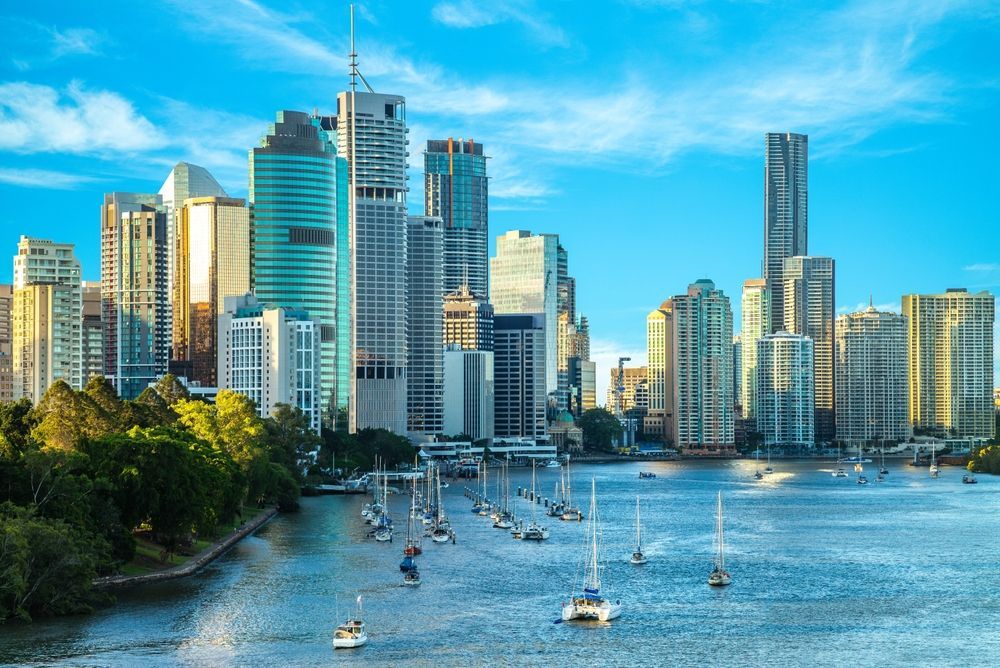Expat Concerns in the UAE and How to Manage Them
Thoughts on Moving to Work in the UAE
Making the decision to emigrate and work abroad will, for many people, be one of the biggest and most life defining choices which they will ever take. A path potentially fraught with uncertainties and unexpected challenges, all potential expatriates experience similar anxieties when they commit to a move anywhere, but some countries pose considerably greater difficulties than others. For Western trained physicians, the Arabian Gulf region presents unique challenges.
Most candidates for jobs in the United Arab Emirates (UAE) are attracted by the potential to earn lucrative tax free salaries with generous benefits packages and work in some of the world's newest and best equipped hospitals and clinics. There is a temptation to over look the restrictions and problems which can be encountered.
As with any risks, preparation is key to their management and we present five of the major ones in this article with some strategies for their resolution.
1: Language - English and Arabic
The working conditions and scope of medical practice are undoubtedly different from those of Western Europe, Canada, USA, UK, Ireland, Australia and New Zealand. English is the principal language of work, although in most hospitals, the majority of patients will be native Arabic speakers. When patients lack English fluency, Arabic translators are available to facilitate communication. English fluency is essential although most employers do not require formal certification in this. A basic knowledge of Arabic is most helpful and can be acquired easily be personal tuition or courses readily available on the internet.
The first internationally recognized certification that assesses proficiency in modern standard Arabic is the CIMA which stands for “Certificat International de Maîtrise en Arabe”, or International Certificate for Proficiency in Arabic. It was developed by the Arab World Institute in close partnership with the International Center for Pedagogical Studies (CIEP) and can be taken at many testing centres in Europe, North Africa and the Middle East. This article contains details of the CIMA test and testing centres.
2: Scope of Medical Practice - Credentialing and Privileging
For many doctors, the scope of medical practice will be different from that practised in the home country. Specialist fields are defined clearly and the privileges granted to the physician set out. Each hospital and clinic has its own credentialing and privileging processes and these will determine what each physician can and cannot do. (This article details the credentialing and privileging processes in Saudi Arabia which are similar to those used in the other Gulf States).
The credentialing process defines the qualifications and experience required for a specific position. Privileging determines the actions and procedures which the doctor can perform. A common example is the general practitioner, termed family physician in the Gulf States. A general practitioner who holds the MRCGP and CCT qualifications and has 3 years post certification experience in independent practice, can expect to be credentialed as a Consultant / Specialist Family Physician. However the privileges granted by the hospital or clinic where the physician practices may be quite restrictive and limited to consultations. Rights to conduct ante- natal clinics, perform minor surgical procedures, provide anaesthesia, practice in emergency departments will usually be curtailed and these duties restricted to the appropriate specialist category of obstetrician, surgeon, anaesthetist and emergency physician. The general practitioner who has developed a portfolio of enhanced skills may suddenly find these redundant.
3: Remuneration - Fee for Service, Salaries and Benefits
Most hospitals and clinics provide expatriate doctors a remuneration package comprising a basic salary and benefits (accommodation, flights, education allowance, healthcare insurance). This is tax free at source at the time of writing. Some employers may offer an incentive scheme to supplement the salary or replace the salary and benefits with fee for service remuneration. This method of payment is activity dependent and increases with each item of service. Activities are defined as consultations or procedures which attract a fee. Whilst providing no basic guaranteed income, fee for service practice has a higher potential reward for doctors with busy practices, but requires additional skills which may not be obvious to doctors who have spent their careers as employees in public healthcare systems. The ability to attract patients, focus on higher revenue work and build a sustainable practice are crucial.
4: Professional Licences and Immigration
Professional licences to practise medicine are issued by the appropriate regulatory authorities in each Emirate in the UAE. There is no national regulator and therefore practice is limited to the jurisdiction of the licence.
The starting point for obtaining a licence is the Data Flow Report which verifies at primary source, qualifications, professional licences and recent professional experience. Details of how to obtain this can be read in our article. The Data Flow Report can be used for applications to all regulatory authorities in the Gulf States.
Applications for professional medical licence are usually managed by employers after the acceptance of a job offer. In most cases these are straightforward paper based applications but a prometric examination or interview will be required for most candidates who have obtained specialist qualifications in Western Europe.
Visa applications are managed by the employer who acts as the sponsor of the visa. Medical examinations and police checks will have to be obtained in the home country, usually at the applicant's expense. It is advisable to understand the requirements in advance and prepare the relevant documents.
5: Lifestyle - Civil Rights, Climate
The global media is full of stories depicting many Middle Eastern locations as restrictive, oppressive regimes, governed by Sharia Law with regular public beheadings. In reality, the situation is less severe than depicted. However one should be aware that civil rights are more restrictive than in the Western nations, dress codes more formal and consumption of alcohol limited.
The climate of the Middle East is a challenge for most people with its excessive heat and dryness. Average temperatures throughout the Gulf range from 25 °C to 45 °C, but often exceed 50C in summer and there is very little rainfall. In the winter the climate is pleasant but in the summer months can be insufferably hot and humid. The Gulf States have invested heavily in air conditioning. Hospitals, homes, shopping malls and cars are air conditioned, cool and tolerable but the pursuit of outdoor sports can be challenging in the hotter months.
Applying for Jobs in the UAE
If you wish to work in the UAE, please register your CV with us or get in touch to discuss your options with our recruiters.
You can search current jobs and apply for any which are suitable. Within your candidate dashboard, you can set up job alerts and upload any relevant documents such as copies of qualifications, licences or cover letter.
Keep reading our News section for the latest information about trends within the medical sector in the UAE.
18 April 2019
Share this post on Social Media
Leave a Comment
SEARCH JOBS
Ready for a change? Whether you’re looking for higher compensation, greater autonomy, a better work-life balance, or just a change in scenery, we have job opportunities in wonderful locations across the world. Start your medical or dental job search today and embark on your next career move.
SIGN UP FOR JOB ALERTS
We believe everyone deserves to find their dream job. Be the first to hear about new practice opportunities in exciting locations across the world Simply sign up for job alerts in your chosen field, and we will email you when a new job in your specialty becomes available.


















